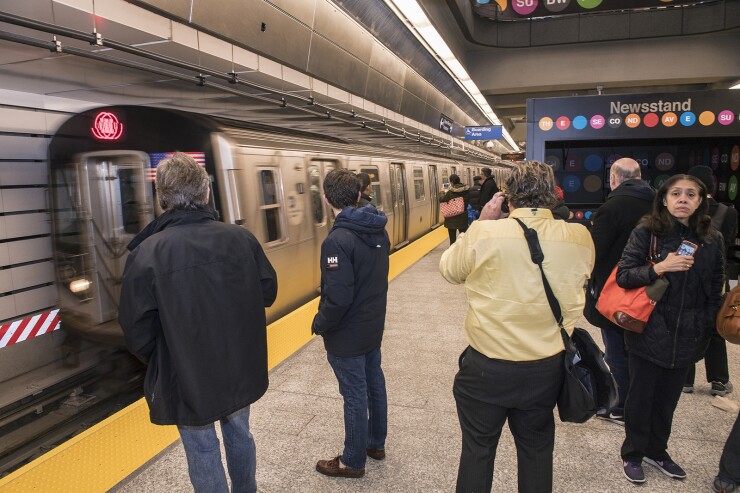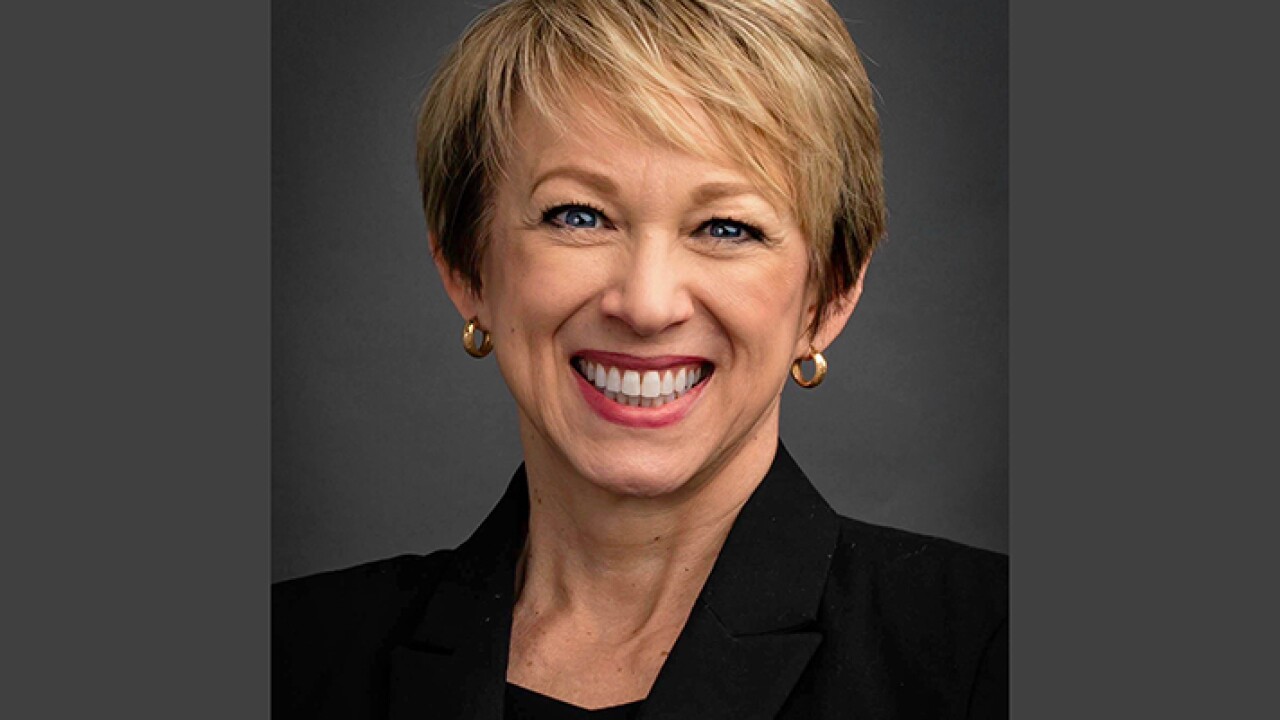The board of New York's Metropolitan Transportation Authority on Wednesday approved an increase in the 2015 to 2019 capital program to $32.5 billion from $29.6 billion.
The new plan includes funding for a third Long island Rail Road track and extra for megaprojects such as the Second Avenue subway line, the first phase of which opened Dec. 31; East Side access for LIRR trains; and improvements to New York City's bus and subway systems.
While the board approved the measure, several board members warned about rising debt. The MTA is one of the largest municipal issuers with roughly $38 billion of debt.
"It is a crushing amount of debt and business has to change," said board member Veronica Vanterpool, who voted against the increase along with David Jones.
Although he voted for the increase, Andrew Saul warned about debt escalating just as interest rates are expected to spike, with the authority having to spend more than $1 out of every $5 on debt service. "It's a time bomb," he said.

Board member Polly Trottenberg abstained, saying board members and the public didn't get enough time to review the program. "We're trying to go back and forth on this," said Trottenberg, New York City's transportation commissioner.
Debate was much more measured than earlier in the meeting, when disability advocates pushed the MTA for improvements to the Access-A-Ride system, which serves roughly 9 million riders annually.
A board executive session and other routine business cut the public-speaking session into two, which further angered the advocates and had neutral observers questioning the optics.
Members of an organization called the Access-A-Ride Reform Group are calling for several changes, including more integration into the taxi system, including tech-oriented ride dispatching services such as Uber.
The group says such an initiative could sharply reduce the cost, estimated at up to $68 per ride.
"City subways, buses and commuter railroads are on an undeniable downhill slide with widespread delays and unreliability," Gene Russianoff, staff attorney and chief spokesman for the Straphangers Campaign ridership lobbying group, said at the meeting in lower Manhattan.
"But compared with the MTA's poorly run Access-A-Ride, they run like precision watches."
Interim board chairman Fernando Ferrer said the authority has talked about Access-A-Ride's problems internally, and that the board would continue discussions "fully and openly" at July's meeting of the New York City Transit committee and the full board.
"Surely we are paying attention," he said.
On Tuesday, Cuomo announced a $3 million "MTA Genius Transit Challenge," an international competition seeking groundbreaking and innovative solutions to improve subway service.
The move comes as a plethora of mass-transit woes have beset the region, notably at Penn Station in Midtown. Several subway lines run through the station, as do New Jersey Transit and MTA unit Long Island Rail Road.
Quasi-public federal operator Amtrak intends to accelerate its track-and-switch overhaul for Penn, with relayed delays expected to further aggravate commuters over the summer.
Cuomo over the past year has taken firmer control in running the state-run MTA. He pushed the agency to finish the Second Avenue subway line -- nearly 100 years in the making -- by Dec. 31.
Three years ago, Cuomo formed a Transportation Reinvention Commission, which held a series of meetings, but little came out of the group except a lengthy report.
Cuomo's contest will feature $1 milllion awards to firms with the best ideas in each of three categories: improving the aging signal system; upgrading the fleet of aging cars; and improving communications technology for cellular and WiFi throughout the system, including tunnels.





